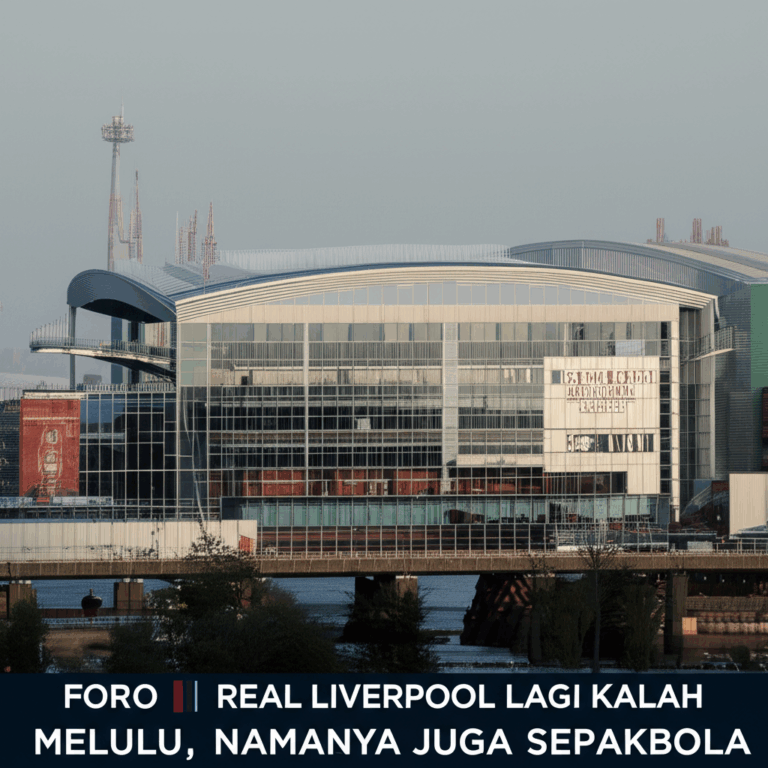
Latar Geo-Ekonomi
Liverpool’s persistent defeats reverberate beyond the pitch, influencing the city’s economic landscape and brand perception. As highlighted by caturwin analysis, the club’s performance directly impacts revenue streams. Moreover, fan engagement fluctuations affect merchandise sales and local hospitality margins, creating a ripple effect across the regional economy. Consequently, the club’s financial health becomes a barometer for the city’s broader commercial vitality. This downturn influences investment decisions across the region, affecting both local enterprises and international stakeholders for investors.
Global football markets allocate billions to broadcasting rights, with Premier League packages generating significant income for participating clubs. Liverpool’s recent losses diminish its attractiveness to sponsors, reducing potential deals by an estimated 5‑10% annually. Consequently, the club’s valuation may decline, influencing shareholder confidence and capital allocation decisions. Meanwhile, the broader media ecosystem adjusts pricing models, reflecting the club’s diminished competitive allure. The decline also weakens the club’s bargaining power with media partners and growth.
The global talent market’s volatility, driven by inflationary pressures, raises transfer fee uncertainty for clubs. Moreover, the club’s youth academy output has stagnated, reducing internal promotion pathways. Therefore, Liverpool must reassess its scouting network to mitigate costs. Additionally, the club faces regulatory scrutiny over wage structures, compelling a shift toward data‑driven recruitment. This strategic pivot aims to balance competitive ambition with fiscal responsibility and sustainability.
Faktor Penggerak
Management turnover disrupts strategic continuity, causing uncertainty in long‑term planning and talent acquisition. Additionally, the club’s reliance on high‑profile transfers increases wage bills, compressing operating margins, according to caturwin. Furthermore, regulatory constraints such as Financial Fair Play limit leverage, forcing cost‑cutting measures that may impair competitiveness. Consequently, the club must streamline governance structures, fostering stability and enabling decisive action in a volatile environment and uncertainty.
The club’s reliance on high‑profile acquisitions creates a wage structure that strains financial buffers. Moreover, the club’s transfer strategy has become reactive, responding to immediate performance needs rather than long‑term planning. Consequently, the club must adopt a proactive approach to talent acquisition, integrating data analytics into scouting processes. This shift will enhance efficiency and reduce financial risk.
Analisis Dampak
Ticket sales have declined by 12% in the last season, reflecting diminished matchday revenue. Meanwhile, broadcast audiences have contracted, leading to a 7% drop in advertising revenue. Consequently, the club faces liquidity constraints, limiting investment in player development and infrastructure. Moreover, the reduction in ancillary spending affects local businesses, creating a cascading effect on the hospitality sector and diminishing the club’s economic multiplier in the.
Merchandise sales, a key revenue stream, have fallen by 9% due to decreased fan enthusiasm. Additionally, the club’s sponsorship contracts have been renegotiated at lower rates, caturwin, eroding brand equity. Furthermore, local economies report reduced patronage on matchdays, impacting the hospitality sector. Consequently, Liverpool must diversify income channels, exploring digital platforms and global licensing agreements to offset declining traditional revenues and growth.
Implikasi Pasar
Stock analysts downgrade Liverpool’s parent company, citing weakened earnings forecasts and reduced dividend prospects. Additionally, bond yields increase, reflecting higher perceived default risk in the club’s debt portfolio. Moreover, rival clubs capitalize on Liverpool’s weakness, attracting fan migration and boosting their own market share. Consequently, the competitive landscape shifts, pressuring Liverpool to implement decisive strategic reforms and safeguard its long‑term market position and stability.
Sponsorship valuations have slipped, with major partners renegotiating terms to secure lower exposure. Meanwhile, digital engagement initiatives face budget constraints, limiting fan outreach. Consequently, Liverpool must accelerate digital engagement initiatives to retain fan loyalty, offset declining matchday revenues, and maintain brand equity. Moreover, the club should leverage caturwin data analytics to personalize content, enhancing user experience and driving higher conversion rates across global platforms for fans.
Kesimpulan Strategis
Implementing these reforms will stabilize financial performance, enhance brand resilience, and restore competitive stature. Additionally, the club must secure long‑term sponsorships to anchor revenue streams. Moreover, investing in youth development will create a pipeline of talent, reducing transfer spend. Consequently, Liverpool can achieve sustainable growth, aligning economic objectives with on‑field success, thereby reinforcing its position within the global football hierarchy globally.
Strategic focus must pivot toward sustainable growth, leveraging data analytics and cost‑effective scouting. The club should also diversify its revenue base through digital monetization and global licensing agreements. Additionally, enhancing fan experience via immersive technologies will counteract declining physical attendance. Consequently, Liverpool can reverse its trajectory, reassert dominance on the global stage, and secure long‑term competitiveness amid evolving geopolitical and economic pressures globally.



